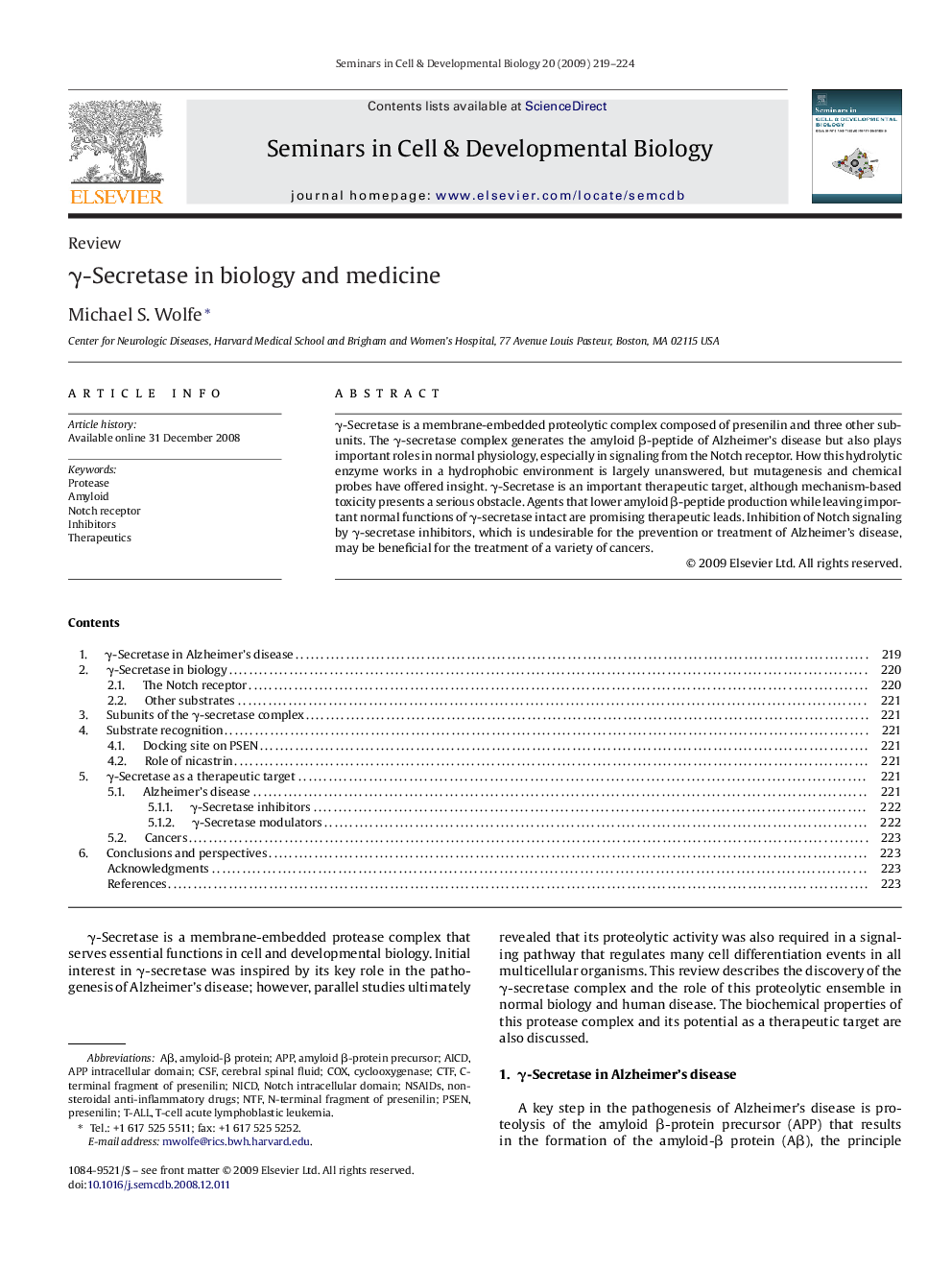| Article ID | Journal | Published Year | Pages | File Type |
|---|---|---|---|---|
| 2203245 | Seminars in Cell & Developmental Biology | 2009 | 6 Pages |
γ-Secretase is a membrane-embedded proteolytic complex composed of presenilin and three other subunits. The γ-secretase complex generates the amyloid β-peptide of Alzheimer's disease but also plays important roles in normal physiology, especially in signaling from the Notch receptor. How this hydrolytic enzyme works in a hydrophobic environment is largely unanswered, but mutagenesis and chemical probes have offered insight. γ-Secretase is an important therapeutic target, although mechanism-based toxicity presents a serious obstacle. Agents that lower amyloid β-peptide production while leaving important normal functions of γ-secretase intact are promising therapeutic leads. Inhibition of Notch signaling by γ-secretase inhibitors, which is undesirable for the prevention or treatment of Alzheimer's disease, may be beneficial for the treatment of a variety of cancers.
